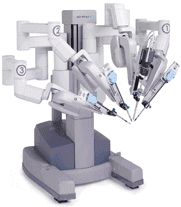
Often, this is not done, as the awareness level is low even among general practitioners. The examination hardly takes a minute and is simple. Yet, very few do it. So the cancer remains undetected till it enters the third or fourth stage.
In the early stages, there will not be any symptoms so the patient will not get himself checked. It is in these stages that the cancer is potentially curable. In the third and fourth stages, it is difficult to cure as the tumour spreads to other parts of the body. It can, however, definitely be controlled.
What factors have been observed to cause prostate cancer?
If one has a first degree relative who has been diagnosed with it, he should go for screening once or twice a year after he reaches 40 years. A family history increases the risk of prostate cancer by two to 11 folds. Lack of exercise also plays a role. Those who consume animal fat, particularly red meat, are at increased risk of developing prostate cancer. This probably explains why population consuming more red meat are more vulnerable in Europe and the US.
The diet should constitute plenty of vegetables, particularly cooked tomatoes. Turmeric (Haldi), which contains curcumin, is known to prevent this cancer. Indian cuisine uses turmeric in generous quantities and that could also be the reason why prostate cancer is not as high in India as it is in the US or the UK.
What kinds of treatments are available?
Treatment is based on the person’s age, grade, and stage of the disease. The options are surgery, radio therapy, hormone therapy, and chemotherapy. Sometimes, we also do what is called watchful waiting or active surveillance to ascertain if the tumour is slow growing or aggressive and treat accordingly. Incontinence and erectile dysfunction are the complaints after surgery. These can be prevented if nerve preservation is done. The nerves are just 2mm or 3 mm behind the prostate, and skilled surgeons are required to perform this surgery to reduce complications.
Read more about Robotic Prostate Cancer Surgery in India, Please visit this link : https://safemedtrip.com/medical-services/advanced-technology-treatment-in-india/robotic-prostate-cancer-surgery-in-india.html

 Click to WhatsApp
Click to WhatsApp +91-9899993637
+91-9899993637



